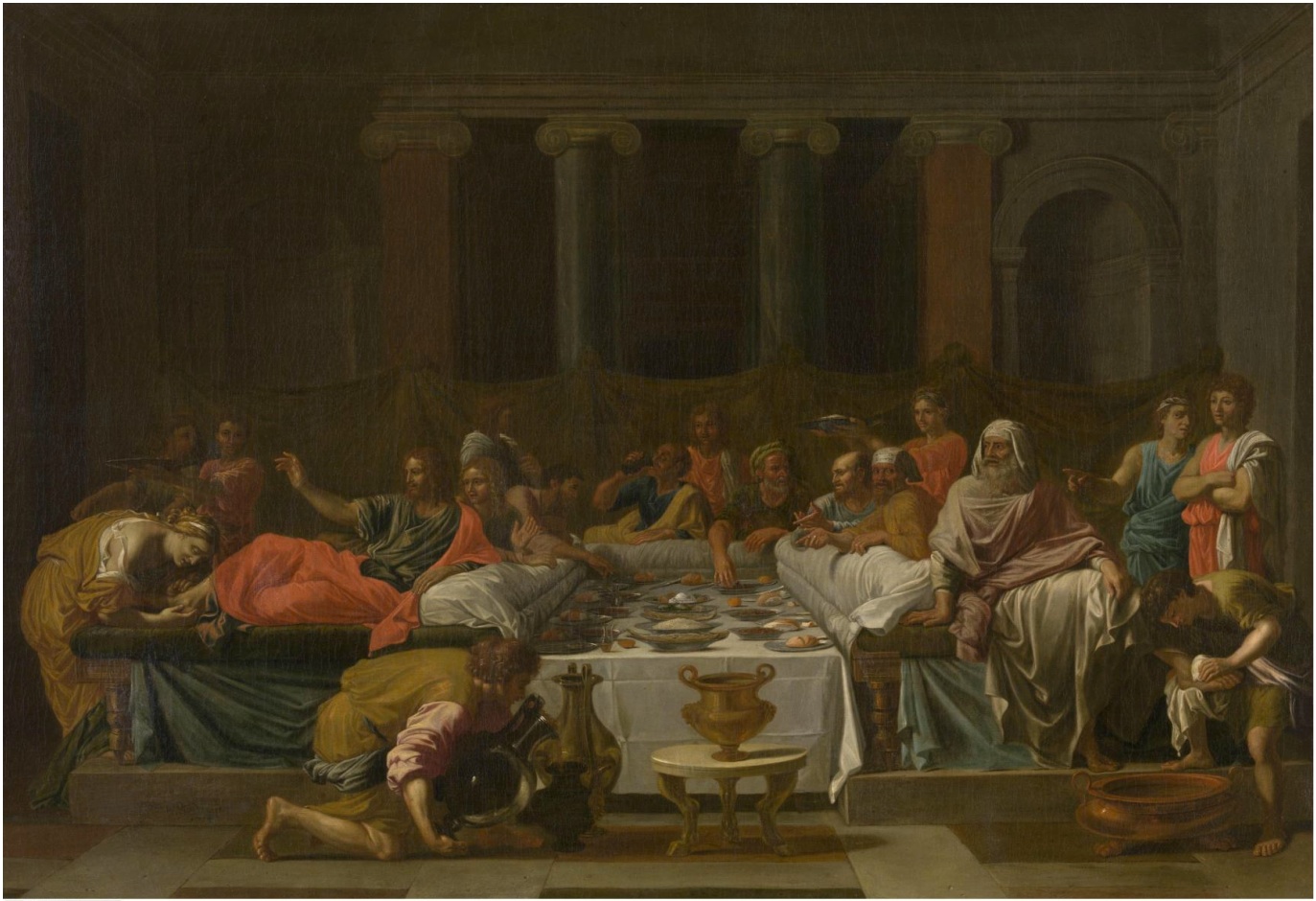
@johnvinod | March 20, 2021
Continuing our focus on Jesus Christ reaching out to the rejected and socially marginalized men and women of his time, let us begin by reading Luke 7: 36-50. It is a familiar story of an unnamed, unwanted, and uninvited woman. She came to Jesus at a dinner party hosted by a self-righteous Pharisee named Simon.
In the Middle Eastern culture of Jesus’ time, such dinners were open to the public. They normally had large courtyards where anyone could walk in uninvited and sit around observing and listening to a guest as the meal progressed. This woman seized the opportunity upon learning that Jesus was in her neighborhood. And she brought one of her most precious possessions, an alabaster flask full of expensive perfume, for the guest of honor. Obviously, she must have learned who Jesus was and what he has been doing.
The people in Jesus’ time did not sit at a dining table with upright chairs with their feet stuck underneath the table, as all western painters would have us believe. Instead, the Jews reclined/leaned on cushions around a low-rise platform/table, leaving their feet stretched out behind them and away from the table. The original text states, Jesus reclined on the couch at a table (Luke 7: 36-37). His feet must have been bare as it was customary to leave the sandals at the entrance and wash one’s feet before entering the house (Luke 7: 44). This is the kind of arrangement which made it easy for Jesus to go around as he washed his disciple’s feet in John 13: 1-7. And in our story today, for this unnamed woman to walk in and approach Jesus’ feet:
She stood behind him at his feet, weeping, and began to bathe his feet with her tears and to dry them with her hair. Then she continued kissing his feet and anointing them with the ointment (Luke 7: 38 NRSV).
This woman is introduced as a “sinner” (Luke 7: 37 & 39), but the nature of her sin is not revealed. Whatsoever it may have been, a conviction and remorse for her sins were evoked in the presence of Jesus Christ and it flowed through her tears. She kept wiping her tears off Jesus’ feet with her hair and kissing them fervently as she applied the highly scented oil/perfume/ointment.
The Pharisee host was scandalized by what he saw happening at his dining table. He doubted Jesus’ identity as a prophet because he did not shrink from the woman’s presence and actions that others perceived as immodest.
The story ends with Jesus teaching Simon and others more than one lesson. Despite knowing her sins, Jesus did not shrink from her adoration. Instead, he declared: “Your sins are forgiven!” (Luke 7: 48). What an assurance to someone who was being whispered about and weeping with penitence at the savior’s feet. You can imagine her joy. Not only forgiven, but she was also sent home with the assurance of salvation and wholesome peace (Luke 7:50).
Jesus teaches us that anyone rejected and unacceptable by the society and their religious leaders can be accepted and loved in his presence. People gossiped about her, made her feel unwanted and unworthy. They wanted her condemned and would have hailed Jesus for condemning her. However, Christ’s presence induced conviction of her sins, and his acceptance gave her a fresh start in life. Despite her past life Jesus offered her acceptance, forgiveness, salvation, and peace.
We often tend to label and stereotype people like this woman whom we consider worthless. Jesus teaches us once again to reach out to such misfits with the message of love, grace, and forgiveness, if we are to follow Christ. If we are ever tempted to think of our faith as too sophisticated, pure, and self-righteous like the Pharisee, which can only accept perfect saints, may we be reminded how Jesus dealt with people like Zacchaeus and this unnamed woman.


